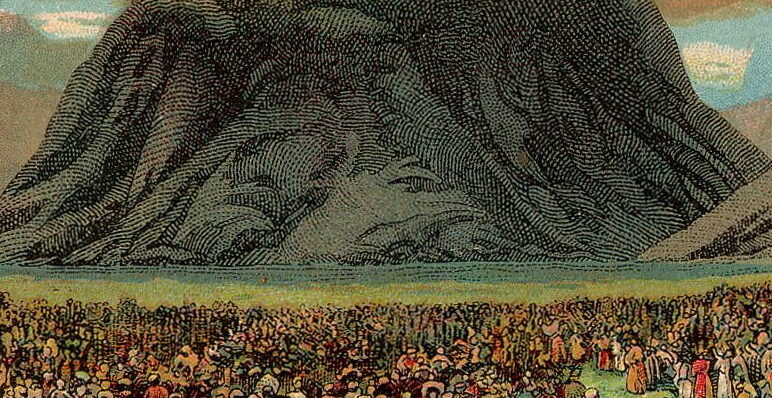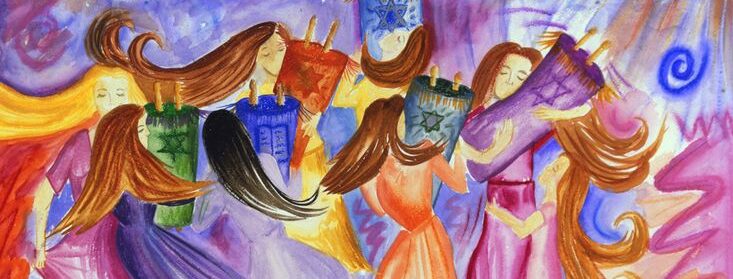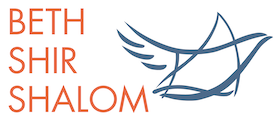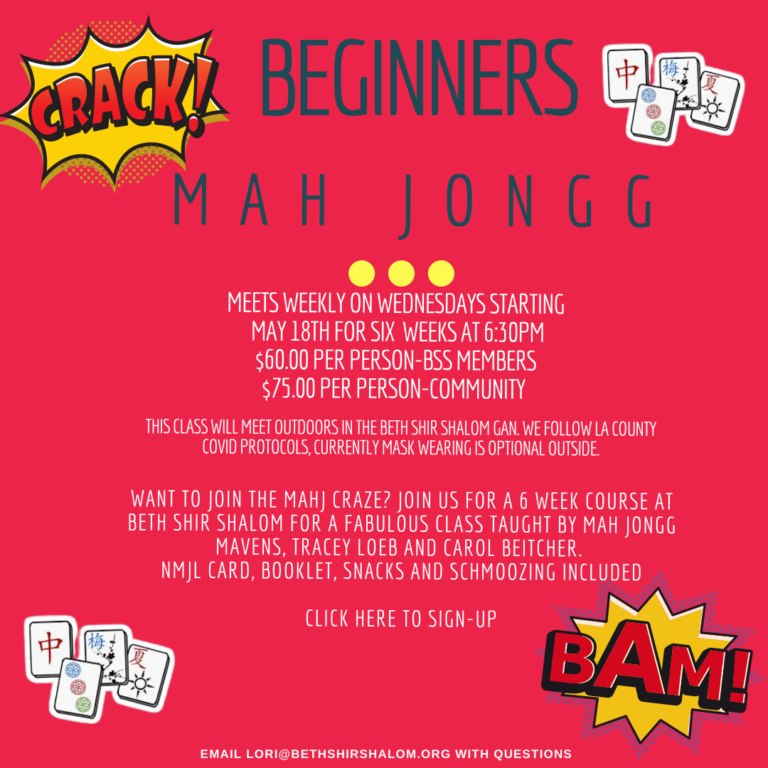Parshat Shemini – D’var Torah by Eli Kadish

My parsha is the third portion in the book of Leviticus, which deals heavily with the laws of sacrifices, agriculture and holidays. My portion, Shemini, talks about why the Israelites sacrificed and specifically how they made offerings. There is also the cautionary tale of Nadav and Avihu, Aaron’s sons who were consumed by fire after not offering an appropriate sacrifice. Shemini also talks about some ethical rules to follow and the dietary laws of the Israelites, which are called kashrut – which you might know as keeping kosher. And if you know me you wouldn’t be surprised to learn that I chose to chant the section that talks about food.
As I read my parsha, the first thing that came to mind was why? Why did God command Aaron and Moses to tell us the kashrut laws? Why are they so important to our religion? And why do people keep kosher at all? I mean, who can resist a good cheeseburger. Actually, I don’t like cheese on my burgers, but I do like oysters, and those aren’t really kosher either.
The 12th century physician and philosopher Maimonides believed that “ food that is forbidden by the laws of Torah is unfit for human consumption.” This doesn’t seem plausible because there is no medical or dietary justification for why we can’t eat things like shrimp, crab, scallops, or pork. There are a lot of different opinions on why there are the laws of kashrut. Some, like the 15th century commentator Abarbanel, say that “the foods forbidden by the Torah are to protect our spiritual health, and those who consume these foods will bring spiritual disaster upon them and drive out the pure and holy spirit.” There are also a lot of people who believe that observing kashrut is a constant reminder of our unique values, traditions, and obligations as a Jew. In other words, these dietary laws regulate what we can and can not eat – and therefore where we eat and with who – as a way of preserving our Jewish identity and loyalty to God. So, it’s really up to you on how you find holiness through food.
I don’t keep kosher. I can’t stand the idea of not being able to eat things like scallops and shrimp or a milkshake with my burger. Whether you’re like me and don’t keep kosher or if you do, I invite you to think about this. How can we find holiness in food, and how do these choices impact ourselves and those around us?
Specifically for those who don’t keep kosher, how can we feel more connected to God or to our Jewish identity through food? For me, I find holiness, in eating Jewish foods like Matzah Ball Soup or Shakshuka. These foods to me represent a connection between my love for food and Judaism like turkey and Thanksgiving.
I find holiness in eating when I’m at camp surrounded by my friends on Shabbat. Or, who knows? You could find holiness in eating meat that was well cared for and killed humanely or by eating vegetarian or vegan. Maybe the next trendy diet could be the stop-climate-change-diet. God should add some rules to the kosher laws so we don’t all die from cow farts in 30 years.
Besides the point, it could maybe be eating in places that you find holy, where you find you are more connected to God, or your Jewish identity. It could also mean eating with friends or family that are Jewish.
At my sleep-away camp, Camp Newman, we pray before and after we eat every meal. These prayers thank God and the people who helped bring our food to the table. To be honest I have very rarely taken a moment to be thankful for the food in front of me outside of camp and I think many of you might relate to that. When was the last time you paused before a meal to be grateful for the food in front of you? One way Judaism encourages us to sanctify food is through gratitude, and so I invite you today after the service to pause before eating your burger – with or without cheese – and take a moment to appreciate knowing where your next meal is coming from.
Another meaningful way that I practice Judaism with my family is volunteering to address food insecurity in our community. As a Jew and someone who is privileged to come back from school everyday to a homemade dinner, I have an obligation to give to those who aren’t as fortunate. I find that this kind of tzedakah also brings me holiness through food, in ways that aren’t just through eating.
Michelin Star Chef Jose Andres founded the World Central Kitchen, a non-profit devoted to providing meals in the wake of natural disasters all over the world. In December he went to Kentucky with his team and delivered meals in places that were hard hit by the devastating tornadoes. He also delivered meals in Spain after a volcanic eruption, in Haiti following an earthquake, and in Louisiana after hurricane Ida. This month he traveled to the Polish border along Ukraine, to deliver meals for refugees fleeing the war. Even though I can not travel the world to give meals to those in need I can do my part to help here in LA. I have worked in food banks to organize food boxes, done Meals on Wheels to deliver meals to those who can’t leave their homes, and prepared and delivered homemade meals to the homeless. Here at Beth Shir Shalom, we’ve hosted Feeding Families this year which delivers healthy food boxes to families in our community who are food insecure.
As I become a Bar Mitzvah, it’s important to me to practice my Judaism through food: Whether it’s helping those in need, eating Jewish foods, or sharing meals with friends & family, food plays an important role in how I connect to my Jewish Identity. I encourage you to think about how food plays a role in your life, and how we can find holiness through it.
Shabbat shalom!
Parshat Ki Tisa – D’var Torah by Arlo Lamm

In my Parsha, Ki Tisa, it’s been a few months since the Israelites have escaped Egypt and they’re now at the base of Mt. Sinai. They have just made a formal agreement with God, known as a covenant, for them to agree to God’s laws in exchange for God’s protection & blessing. Moses goes up to the top of Mt. Sinai to convene with God.
To the Israelites at the base it seems like Moses has disappeared. So it’s a time of great confusion. They’re scared and they’re not sure if they have any leadership and they want to go back to the old gods – so they create a Golden Calf.
Moses sees the Israelites with the golden calf and in a fit of rage smashes the tablets that God has just given him. Then he orders 3000 Israelites to be killed for abandoning God and worshipping an idol. When the idol worshippers are killed, he pleads for God to not kill the rest of the Israelites.
What stood out to me in this story is God’s wrath. God is mad at the Israelites for making a golden calf, but as Rabbi Huna taught, “It’s as if a parent opened a business for his child on a street filled with evildoers but when the child began acting unethically the parent became angry and threatened to punish them. A friend intervenes and tells the parent: you are as guilty as your child. Did you not place them on a street of evildoers in a place where they could have picked up bad habits? Did you not expect that the environment would have an influence upon them?”
In other words, Rabbi Huna said it is not the Israelites’ fault, it should be God’s fault because he left them in exile for so long surrounded by people who are polytheistic, that’s what they knew. That’s what everyone around them did so they are the odd ones out. It’s like the kids going into the Willy Wonka factory, with promises of so much delicious candy, but they are expected to behave perfectly or they will meet a “sticky end.”
To me this feels unjust, and even though Moses had 3000 people murdered, I think Moses didn’t have to order the 3000 to be killed. He could have just exiled them instead of slaughtering them. What this makes me think about is rage.
One example of rage that I saw was one time when me and my friend were walking his dog and saw a guy spray painting a fence around a house under construction. Somebody on the inside innocently pushed out the fence and it accidentally hit the guy in the face. In a fit of rage he pulled out a gun on the contractor. We quickly ran away and called the police, but it was a pretty scary thing to witness.
I also see rage in politics from things like the January 6 insurrection, where rage fueled a violent breaching of the Capitol and killed multiple people. So rage is a dangerous emotion that we should all work on.
In this parsha, the Israelites lost faith and were punished harshly by Moses and almost by God. What I have learned from God and Moses is that we all have rage – even God. We all over react, and even if we feel full on justified we should take the time to really think before we do, especially when it comes to anger. If we can do this then there would be a lot more peace in the world.
Parshat Vayikra – D’var Torah by Bailey Hughes

The book of Leviticus, or Vaykira in Hebrew, is all about sacrifice. God instructs Moses about sacrifices that can be offered in the sanctuary to ask for forgiveness for mistakes and sins.
As I first read my portion, it was so boring. I didn’t understand how these sacrifices were supposed to make up for mistakes and sins. There was a burnt offering and a sin offering and penalty offering and none of it seemed to relate to my understanding of forgiveness or atonement. As I read through my portion I realized that maybe it was relevant in a different way then I had thought and that there was a more modern way to interpret this.
Even though we don’t sacrifice animals today or kill them to practice our religion, the ideas behind these rituals are surprisingly relevant. In Judaism, after the Temple in Jerusalem was destroyed in 70 CE, the rabbis substituted prayer for sacrifice, and we continue to say prayers for gratitude, well being, and forgiveness today. Vayikra as a whole is more relevant than I would have anticipated when I first read my Bat Mitzvah portion.
Dr. Tamara Eskenazi, a local Los Angeles scholar teaches that “Vayikra is an optimistic book. It assumes the world is a well-integrated ecosystem that comes with a troubleshooting guide for when things go wrong. Vayikra doesn’t blame people for things going wrong, it offers a toolkit to restore the ecosystem.”
As a dancer, I make mistakes constantly – we all do. It’s part of learning combinations and routines. Mistakes help you learn and grow as a person. In dance, there is a system to fixing what goes wrong. I take the time to think about where I made a mistake and what I can do to fix it the next time. My teacher is watching to see where I may have struggled to give me some tips for improving upon it. I then try to incorporate the feedback and practice the part where I messed up a few times with her tips. Dancing is a process – just like life. It doesn’t fault the dancer for making mistakes but views them as a natural path to growth and improvement.
Though we no longer restore our broken ecosystems with animal sacrifice, prayer can be used to reflect on mistakes and meditate on forgiveness. As a human being, like all of us, I definitely make mistakes, and when we do we have two choices.
We can ignore our mistakes and sins or we can spend time perhaps in prayer reflecting on them so we can correct them in the future and become a better version of ourselves.
As I become a Bat Mitzvah, I take comfort in the fact that everyone in the Torah – including God! – is imperfect. They all have flaws and make mistakes but it helps them learn and become a better person. As a society, we still judge people for making mistakes and jump to find all the negatives. But mistakes are a great way to learn and in many ways a positive part of life – this is what I’m taking from the ideas in my Torah Portion Vayikra. When I make a mistake in life or do something I shouldn’t, I recognize that this is part of the process.
Just like learning a new combination in dance, making mistakes helps you grow and having a system in place to help us grow and learn from our mistakes is a healthy, positive part of life. Mistakes shouldn’t be judged, they should be looked at as a way to grow, learn, and improve as a human being.
So the next time you make a mistake, I hope instead of getting frustrated or beating yourself up about it, you see it as a moment of growth to learn from and share your experience with others so they can learn and grow too.
Shabbat Shalom!

